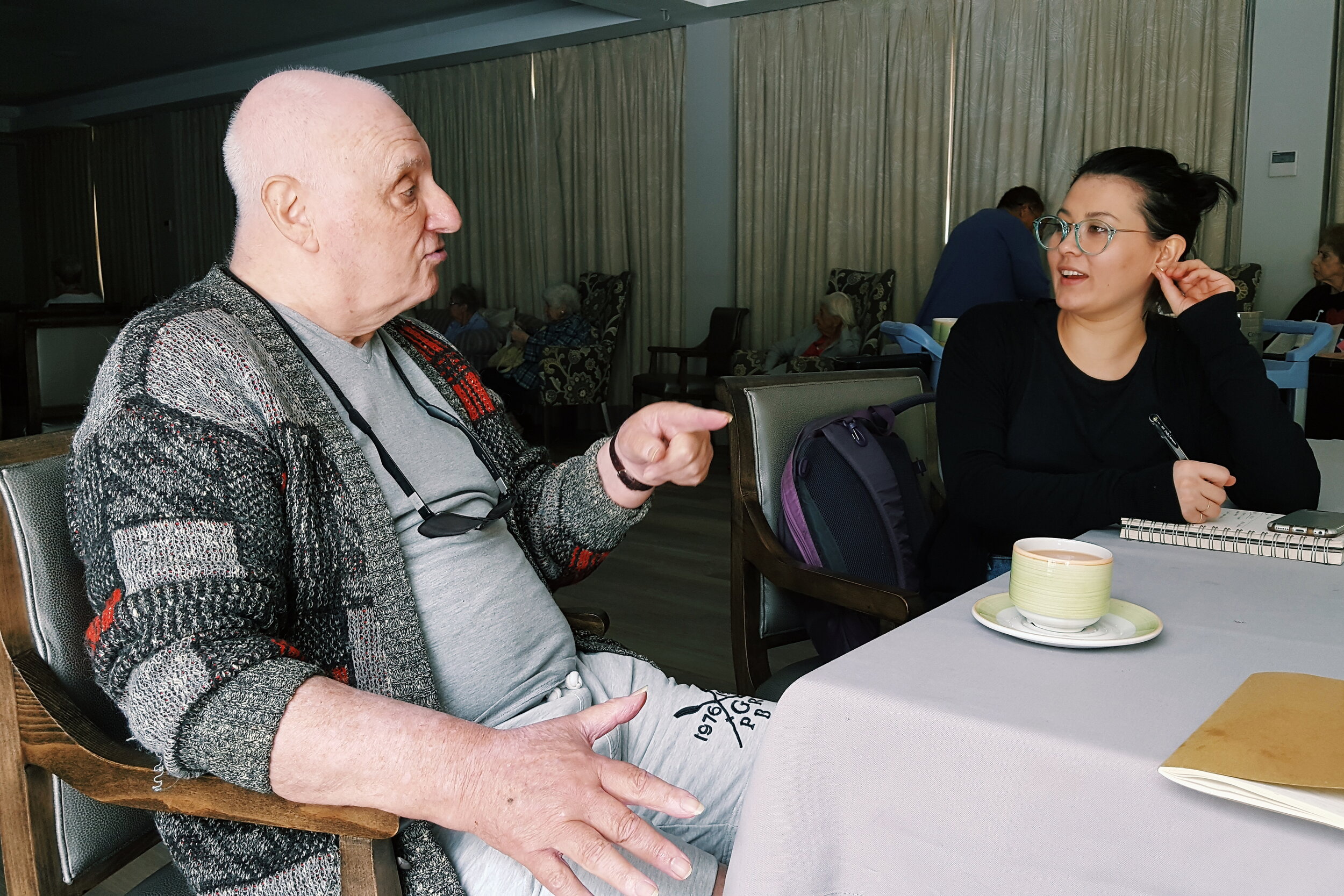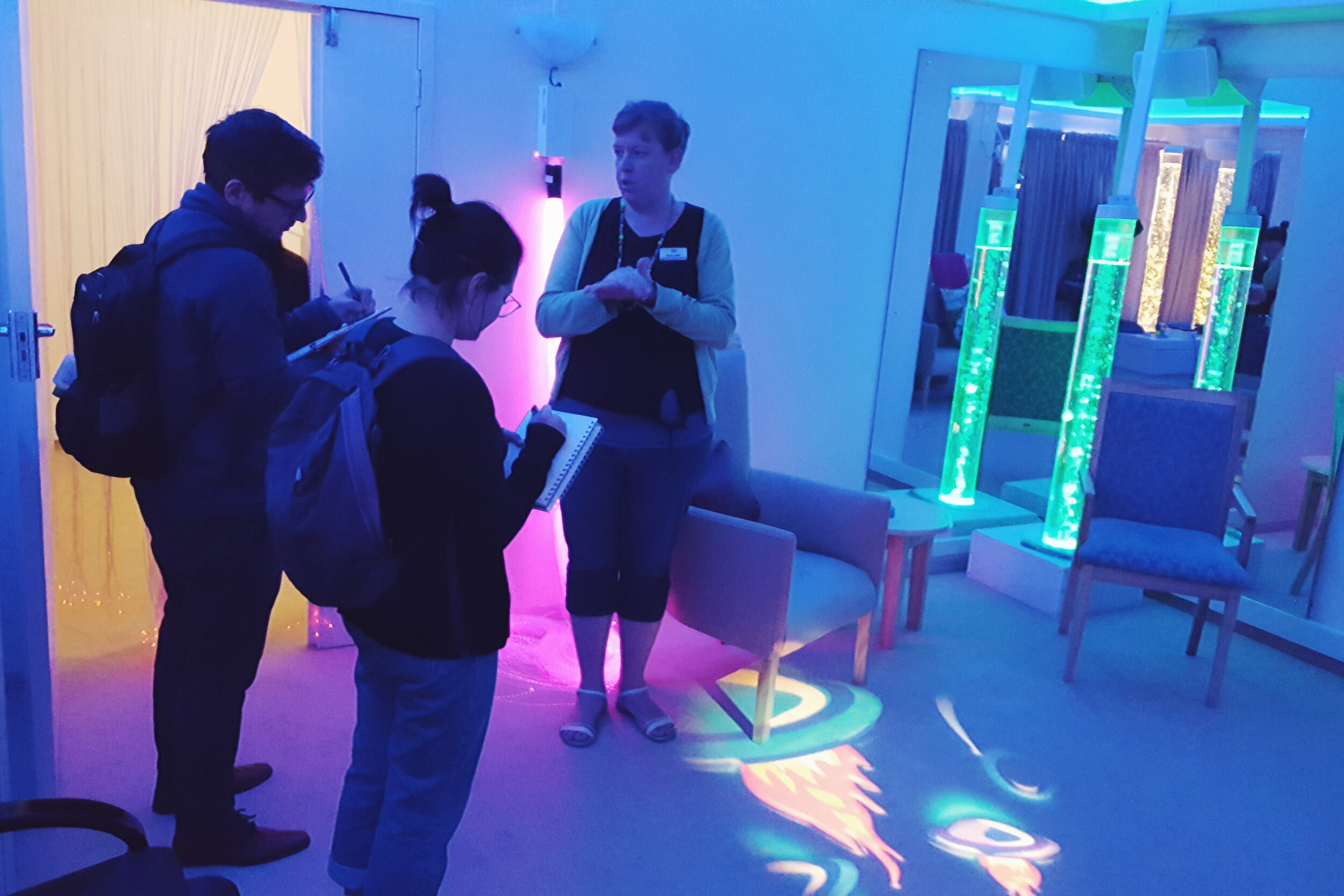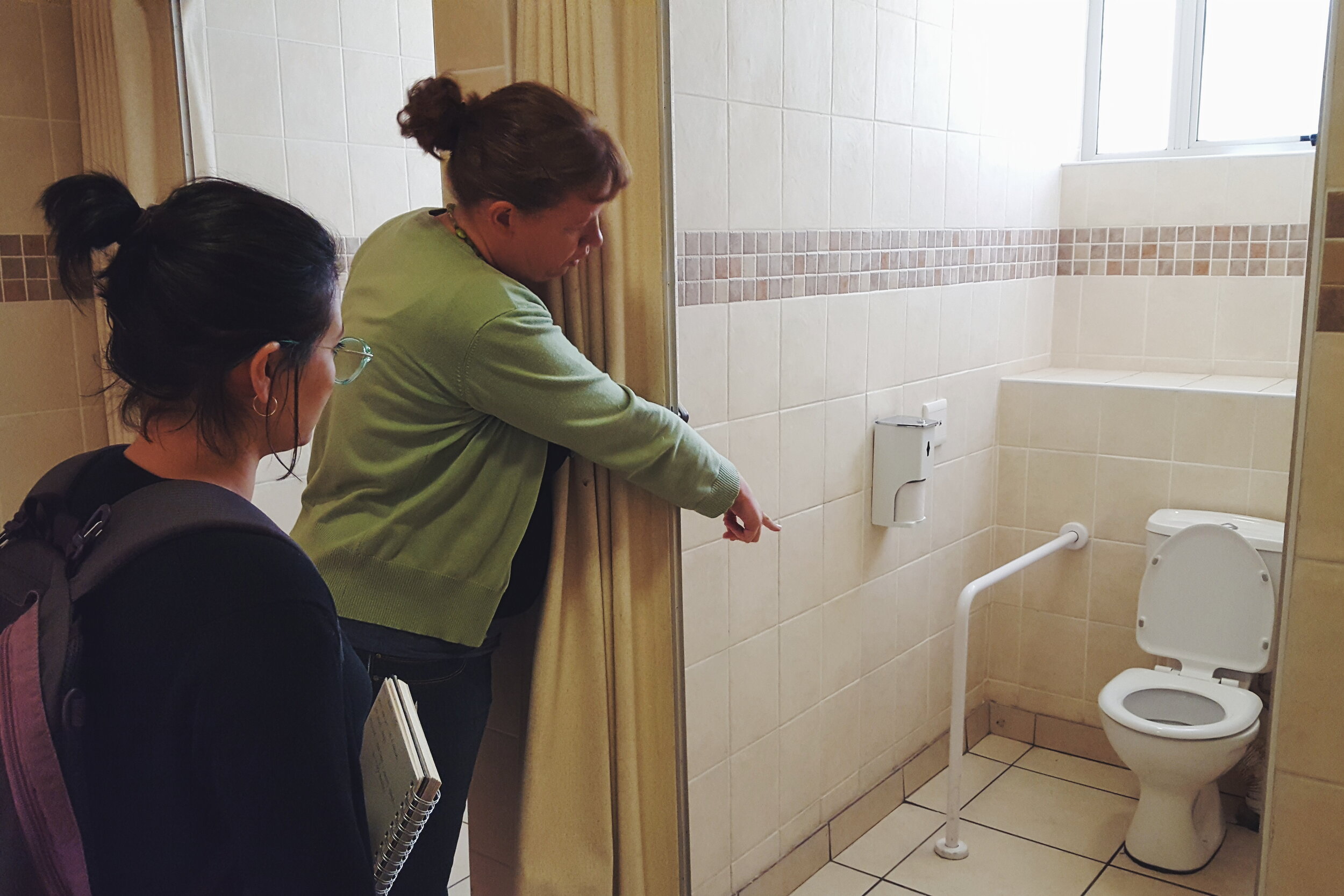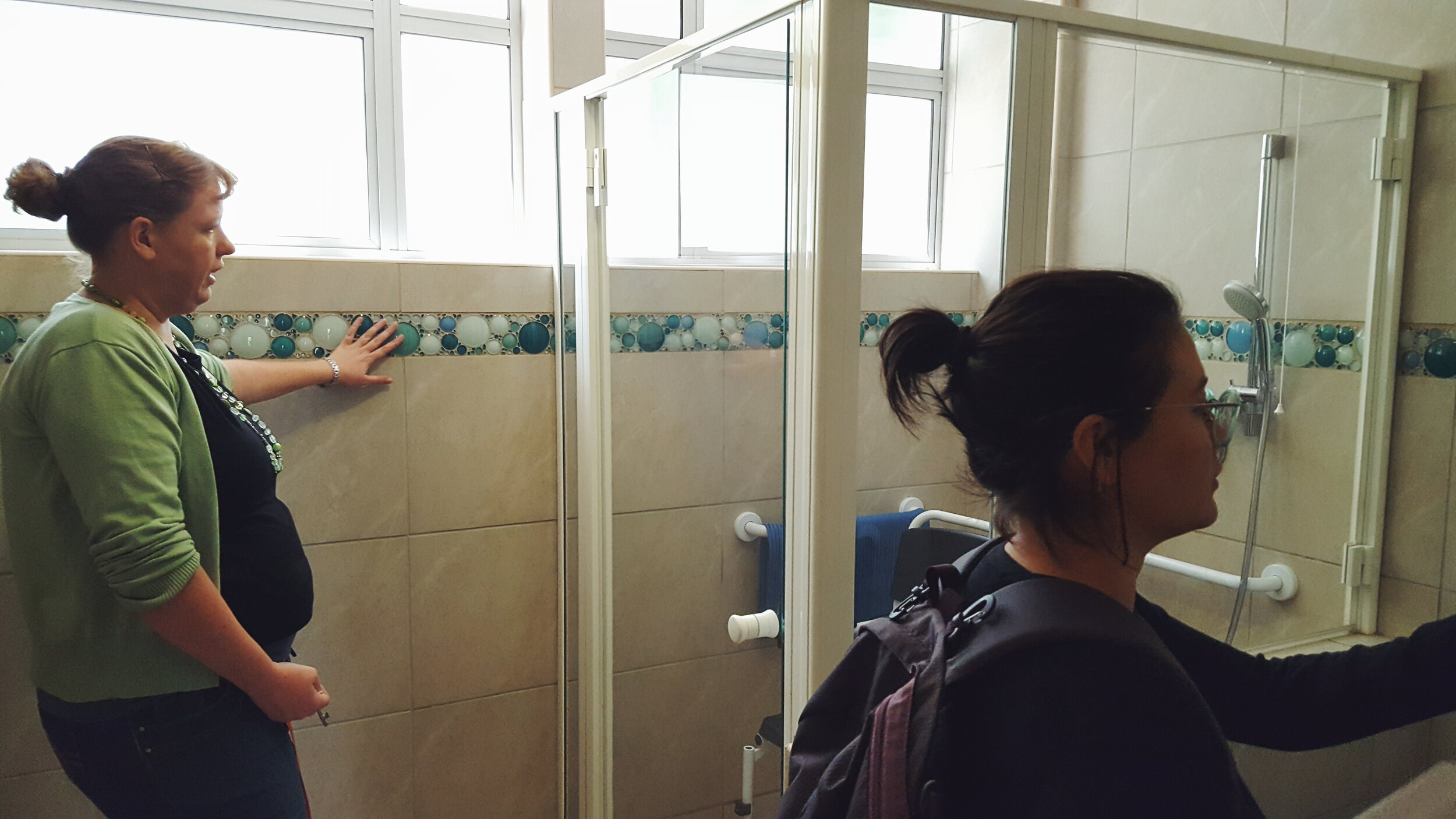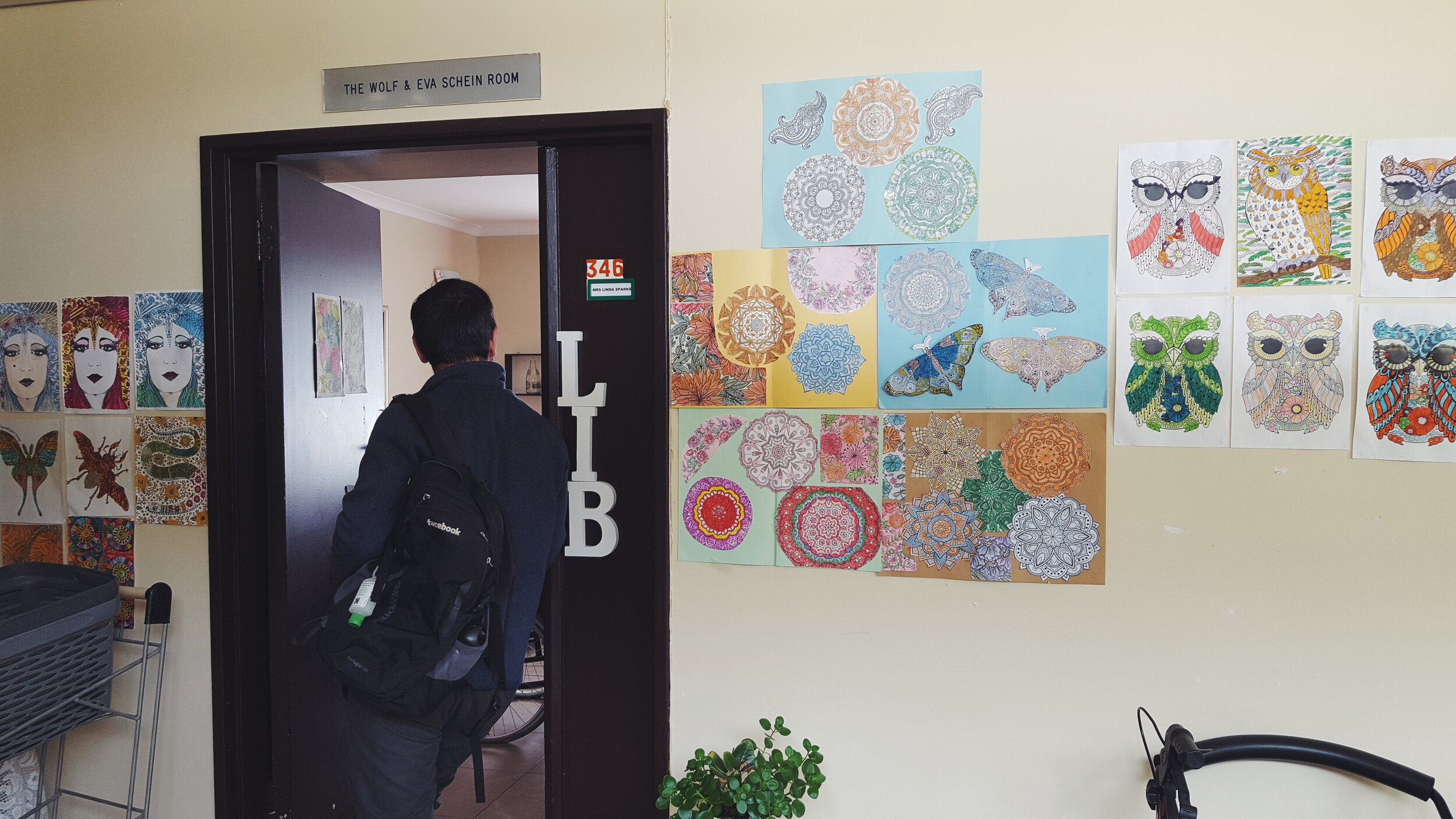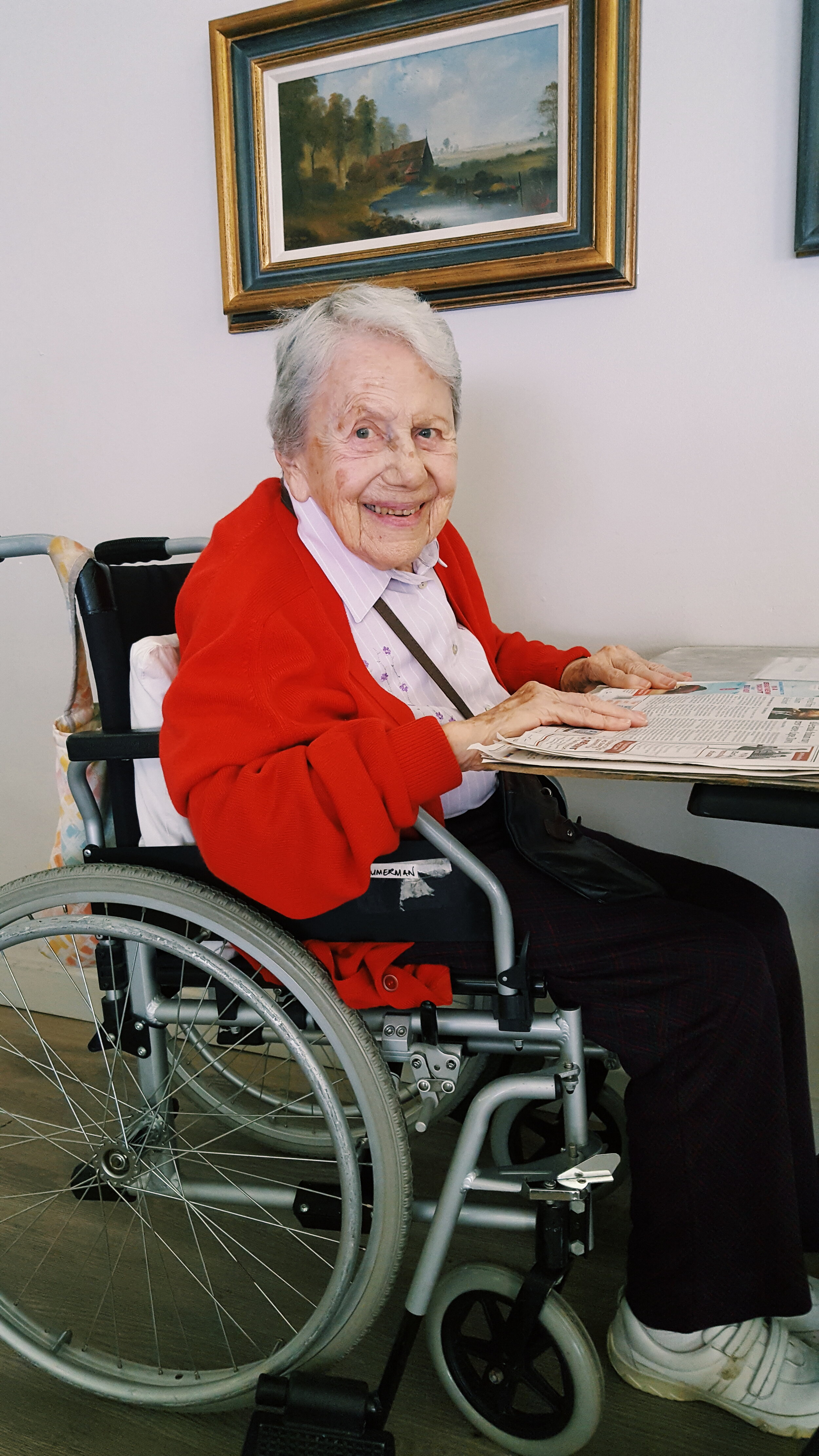Re-designing the shower experience for seniors with dementia and their carers
“The conditions that support a person with dementia – a calm, coherent, orientating and gently stimulating environment – are good for all of us.”
The Challenge
For seniors experiencing cognitive decline, the process of being showered is often frightening. The sudden pelting of hot water, the embarrassment and indignity as someone strange undresses and sponges you--all of these compound the lost control that a person might feel when aging in an elder care facility.
Our goal was to re-imagine the shower experience for seniors with dementia. We wanted to maximize dignity, comfort, and safety for both the senior and the carer.
Teammates: Alex Kasavin (Yale SOM, '19) and Gwyneth Bacon-Shone (Yale School of Architecture, '19). Sketches and renderings by Gwyn. Photos my own.
The current shower design for some residents in assisted living at Highlands House elder home in Cape Town.
"I don't think they use the side window at all."
Naomi Meyer, occupational therapist at Highlands House, demonstrates how to bend, rotate, and even reach underneath to clean a resident who's soiled himself. "Most carers prefer to just get in the shower and get wet."
Highlands House and the Water Crisis
We partnered with Highlands House, an elder care home in Cape Town, to conduct field research in March of 2018, during the height of the water crisis.
After speaking with staff and residents, as well as observing life at Highlands House, we realized that if you make showering more comfortable for the senior and the carer, then showers will be also quicker, safer, and less wasteful of water.
Our Work
As we reviewed our notes, we thought about what existing memories a person might draw on to feel comfortable while wet and sitting (lounging on a pool float? Having your hair washed at a salon?).
Then, if mats are a tripping hazard, can we create a textured floor to prevent slipping? What about a misting shower head to make the haptic experience gentler, while also saving water? What sounds and scents would be most calming for both senior and carer? Can we bring the towels closer to minimize the time that the carer feels cold after the shower ends?
Our design aspires to bring residents and their caregivers into closer alignment. If one is comfortable, then the other is likely to be more comfortable as well. There will be less friction in their relationship, and the other endeavors they undertake together - from dining, to entertainment, to simply coexistence - will be more humane and less clinical.
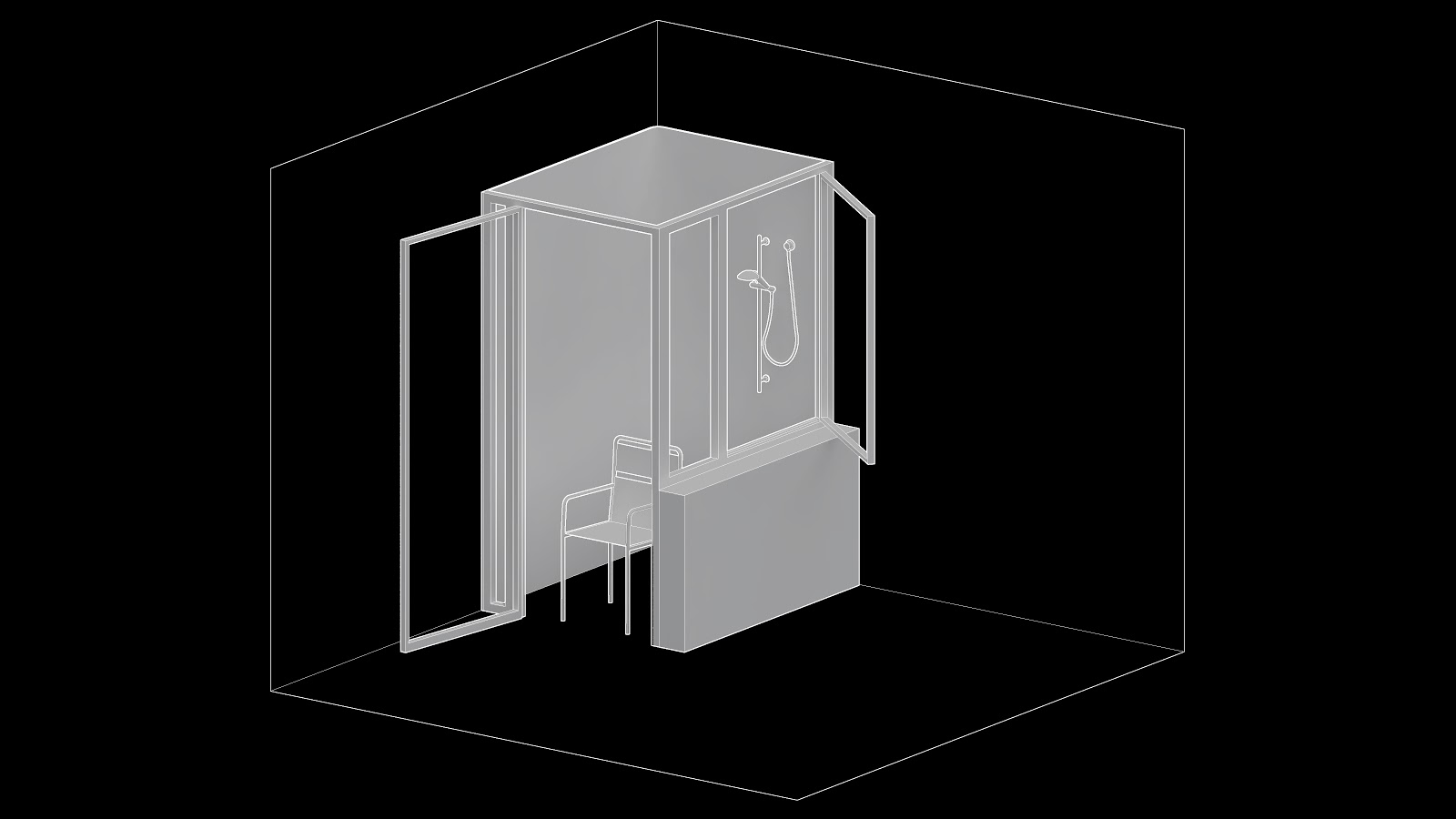
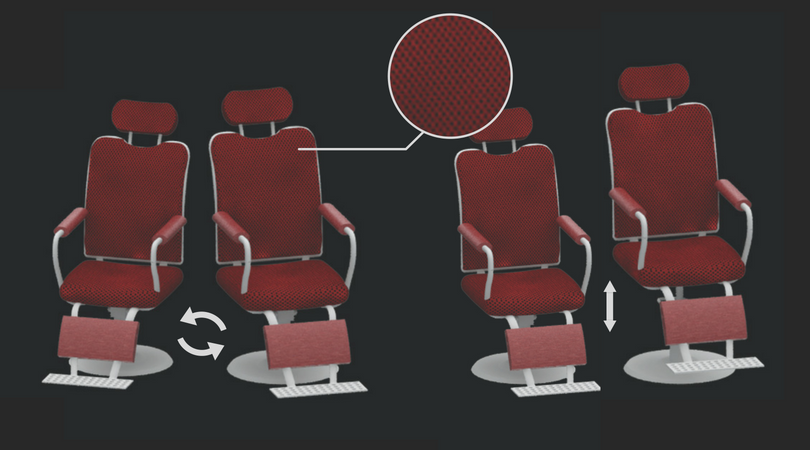
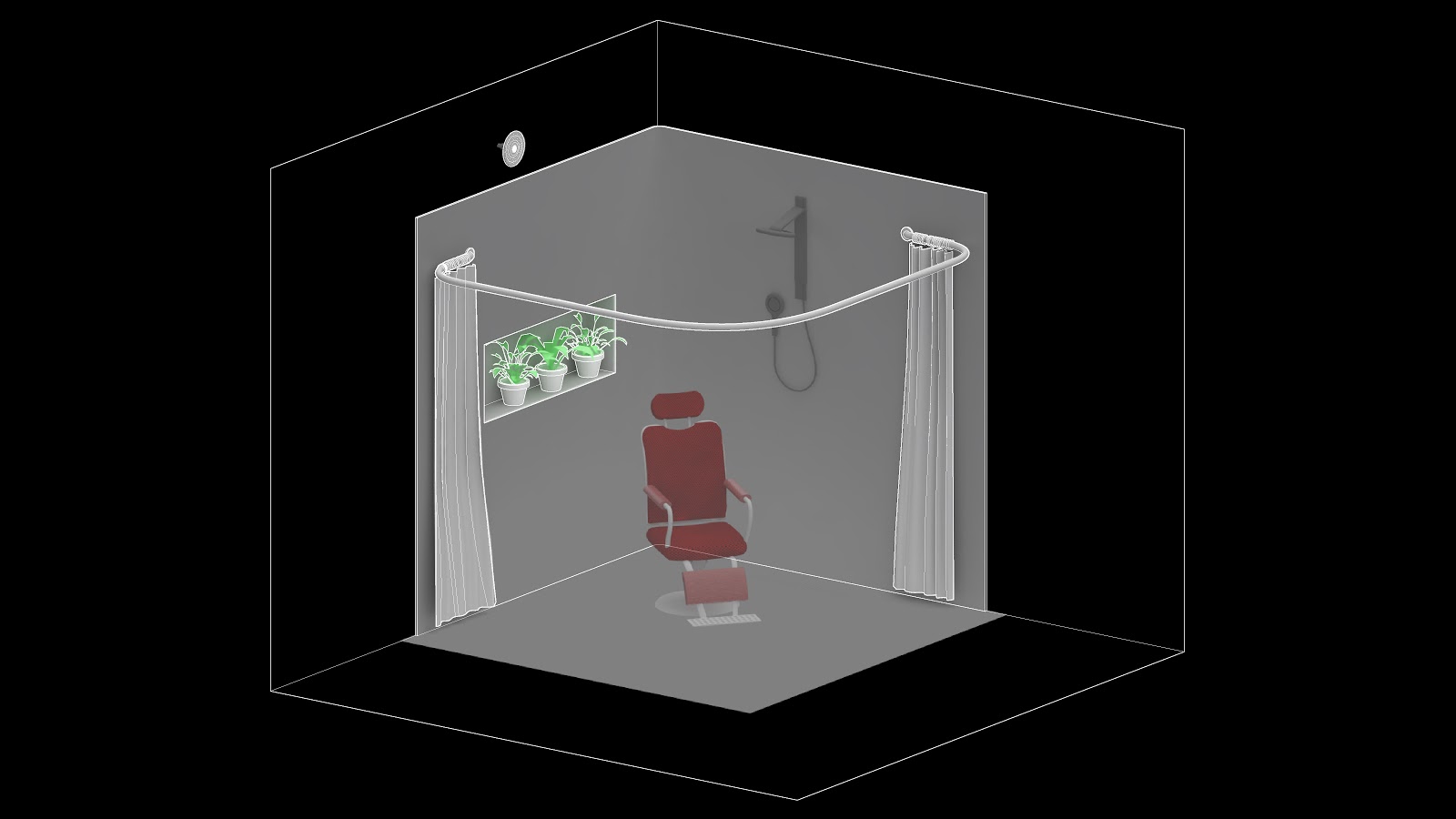
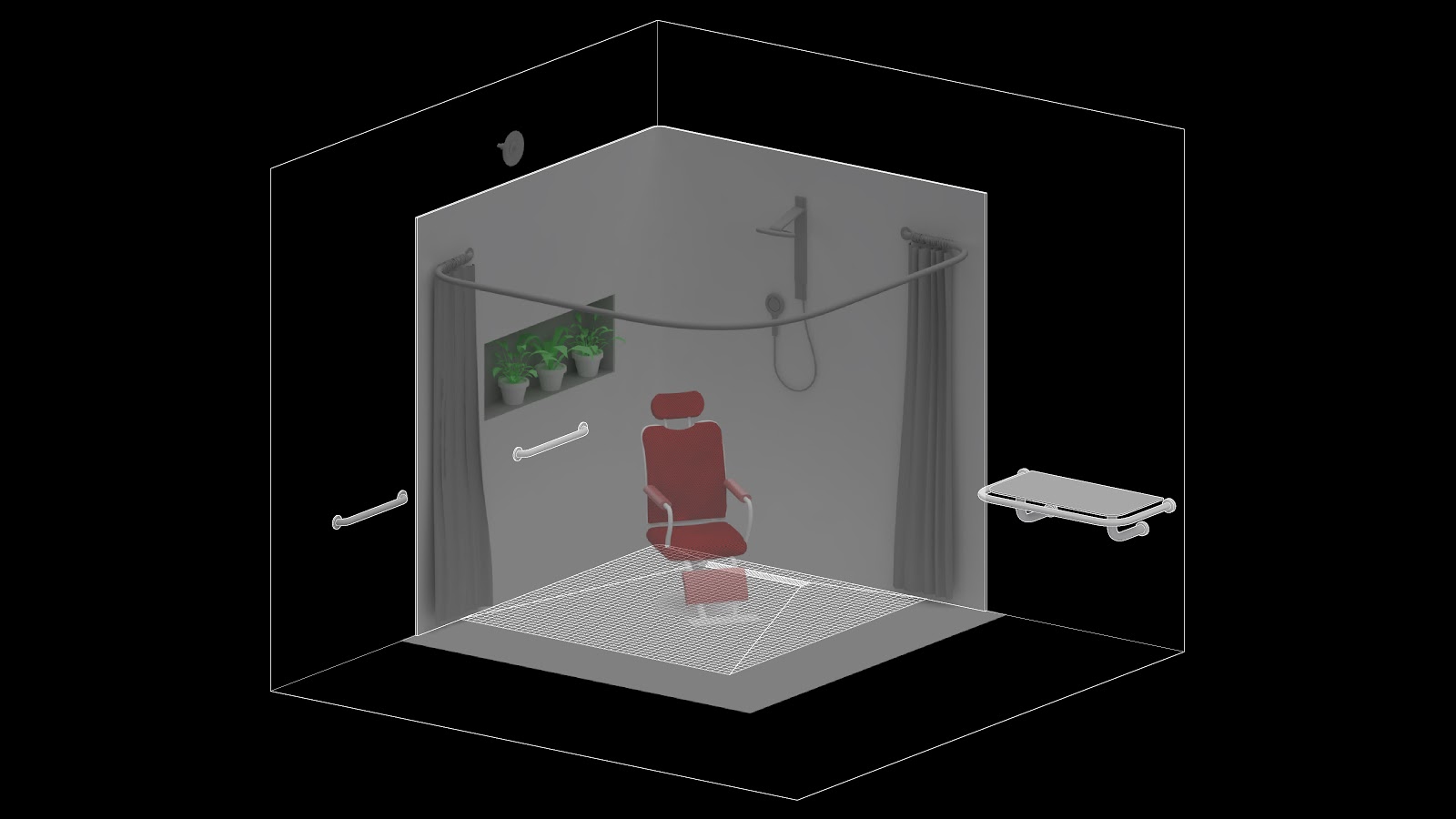
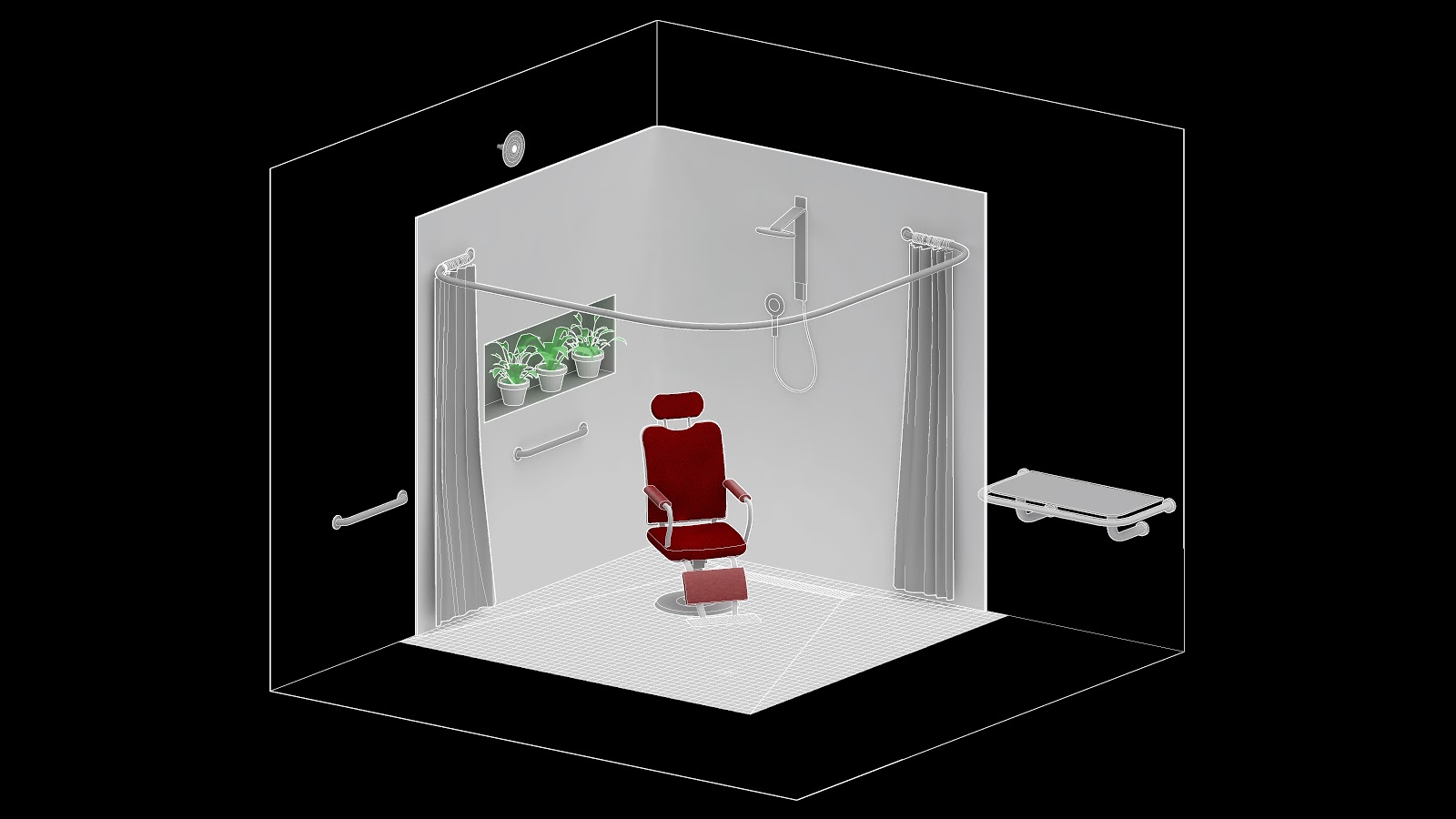
"This is not a medical center with residents. This is a residential facility with a medical attachment."
Harris Burman, Executive Dir. Highlands House
